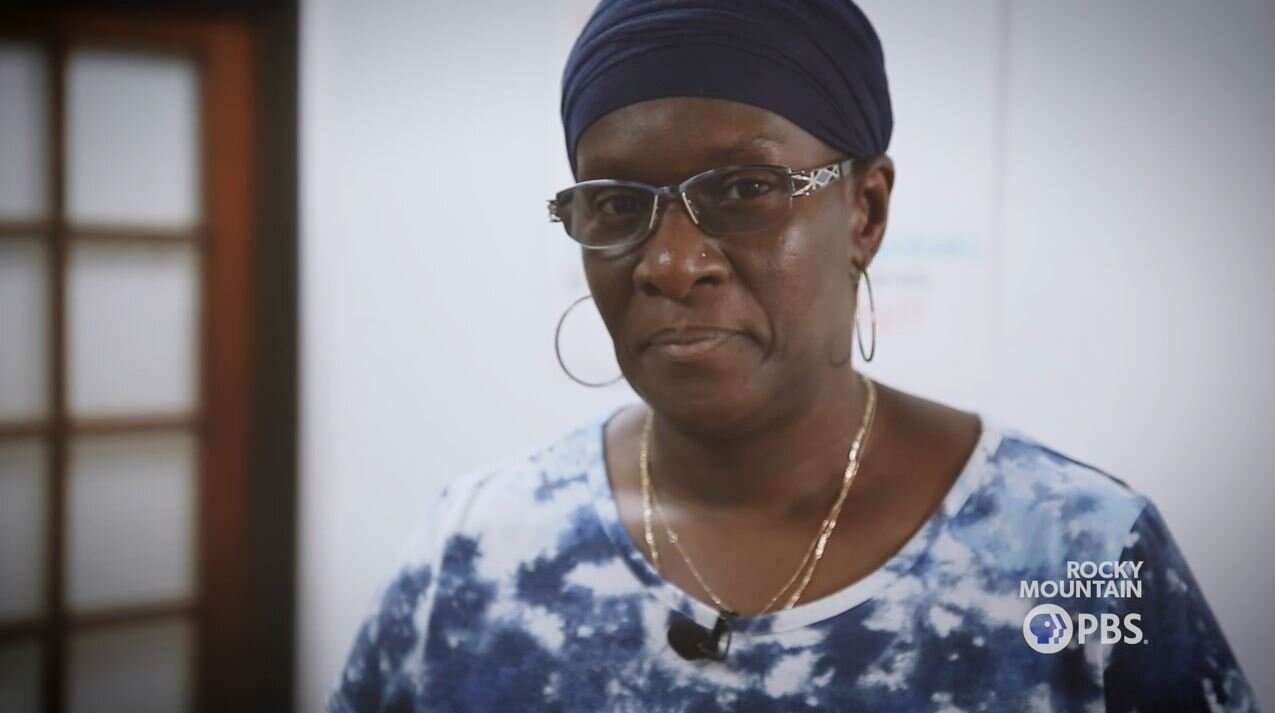Aurora recovery center focuses on addiction treatment for transgender women

AURORA, Colo. — Paula Rice’s eyes light up when she talks about her job.
“Life is wonderful right now," Rice said. "I’m seeing things in a whole new light.”
But the road leading to this point was difficult, to say the least.
“I am a recovering crack addict, and I’ve been clean and sober for 17 years. Thank you Jesus!" Rice exclaimed. "When I was out there doing crack and everything, being transgender, the only thing we knew was to go out and prostitute to get money."
Rice came out as transgender when she was a teenager. She now uses her experiences to help other transgender women become and stay sober at the Don’t Look Back Center in Aurora. “I am the program manager for the TOP program, which is the transgender outreach project.”
The Don’t Look Back Center is an Office of Behavioral Health-licensed agency that offers addiction counseling and therapy services for women and transgender woman. Corinthiah Brown is the founder.
“We have a place that’s trauma-informed and I can’t express [the word] safe enough," Brown said. "It’s a place where you’re safe to talk about trans issues: going to the doctor, housing, employment, hormones — that’s a huge issue. Learning how to talk with your healthcare providers. Educating people about how to use pronouns. Helping people through their transitions.”
Brown’s personal history with addiction and recovery is why she started the Don’t Look Back Center in 2018. She was a single mom of four, lived on the streets, spent time in prison and has now been sober for 24 years.

“The name the ‘Don’t Look Back Center,’ I came up with that name because for my life, every time I looked back and tried to fix things, I’d always end up back in the same situation and didn’t realize I was going at life the wrong way,” Brown explained.
Among the programs offered, including the transgender outreach program, clients have access to addiction therapy, relapse prevention, Seeking Safety (a therapeutic program for women who’ve experienced trauma, substance abuse and/or post traumatic stress disorder), DUI education classes as well as a sober-living home for women and transgender women.
“With them out there being addicted — there’s also prostitution and being homeless, being assaulted and molested on the streets and abuse. All of that stuff goes on, which makes them fall into substance abuse even more. So we try and not let them go that far,” Rice said.
The center also helps clients who are HIV positive navigate the complicated health care system.
"Many of them have been discarded from their families just because of their sexuality or life choices, and it leaves me for a loss of words when I think about it because I have children and I can’t imagine — Why would I stop loving my child?” Brown wondered with tears in her eyes.
Brown says helping the most marginalized and underserved populations with as many services as possible is her mission.
“Not only to offer treatment but also incorporate culture," she elaborated. "We have a group that’s specifically for women of color where it talks about historical trauma in America and generational trauma.”
Both Brown and Rice feel that their success proves that others can heal as well.
“If I can change, anyone can change,” said Brown.
Rice added: “If I can get one person to stop using, my job is complete. I’m happy. We try and give them a hand up not a hand out so they know which way to go in life.”
Dana Knowles is a multimedia journalist at Rocky Mountain PBS. You can reach her at danaknowles@rmpbs.org.
Julio Sandoval is a multimedia journalist at Rocky Mountain PBS. You can reach him at juliosandoval@rmpbs.org.